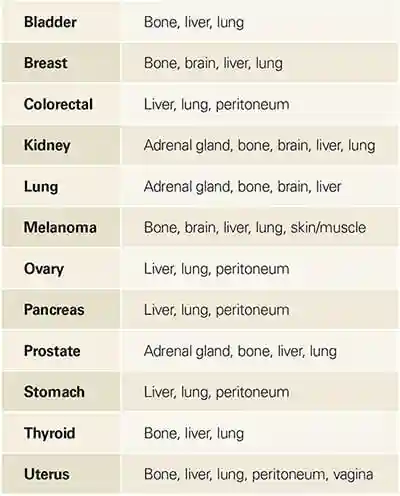
Cancer Overview
What is cancer?
Source: The website of the National Cancer Institute
A term for diseases in which abnormal cells divide without control and can invade nearby tissues. Cancer cells can also spread to other parts of the body through the blood and lymph systems.
There are several main types of cancer. Carcinoma is a cancer that begins in the skin or in tissues that line or cover internal organs.
Sarcoma is a cancer that begins in bone, cartilage, fat, muscle, blood vessels, or other connective or supportive tissue.
Leukemia is a cancer that begins in blood-forming tissue, such as the bone marrow, and causes too many abnormal blood cells to be made.
Lymphoma and multiple myeloma are cancers that begin in the cells of the immune system.
Central nervous system cancers are cancers that begin in the tissues of the brain and spinal cord. Also called malignancy.
For up-to-date information on cancer please visit the National Cancer Institute

How cancer kills – and what you can do to help yourself
Most cancer deaths caused by metastasis.
It is estimated that metastasis is responsible for about 90% of cancer deaths. This estimate has changed little in more than 50 years, says this study.
Most metastases caused by Cancer Stem Cells (CSCs).
CSCs have been shown in numerous cancer models to be involved in tumor development, cell proliferation, and metastatic dissemination, while possessing a capacity for sustained self-renewal. CSCs, which typically represent a small proportion of total cells of a given tumor, also exhibit resistance to chemotherapy and radiotherapy. Indeed, exposure to these treatments may promote “stemness” in nonstem cancer cells, which may explain why successful therapeutic reduction of tumor bulk will often fail to produce clinical improvement, says this 2016 study.
Senescent Cancer Cells are also responsible for metastasis.
Senescence is the process by which cells irreversibly stop dividing and enter a state of permanent growth arrest without undergoing cell death.
According to this 2020 Review in Trends in Cancer, a significant number of commonly used cancer interventions have been associated with the induction of cellular senescence in either tumor or non-tumor cells and tissues.
Therapy-induced senescence can cause cancer metastasis and relapse and several adverse reactions to cancer treatments.
Learn more about Cancer Stem Cells and Senescent Cancer Cells
Other causes of cancer deaths include:
Tumors that affect vital organs
Organ invasion by neoplastic cells
Respiratory failure
Cardiovascular insufficiency
Embolism (A block in an artery caused by blood clots, fat globules, infected tissue, or cancer cells.)
Infections
Metastasis
Systemic cancer treatment and its side effects (chemotherapy and other anti-cancer drugs)
Surgical treatment and its potential complications
Cachexia (Loss of body weight and muscle mass, and weakness)
This 2019 study says: Our data support the idea that the majority of deaths from solid tumors are caused by metastases…When considering deaths from cancer without metastatic disease as an underlying cause, a few different scenarios come to mind. First, we have cases where local tumors affect vital organs, such as airways, brain, heart, and liver. Second, systemic cancer treatment and its side effects can be fatal by multiple organ failure, bleeding due to thrombocytopenia, infections, interstitial pneumonitis, and tumor lysis syndrome to name a few. Third, surgical treatment and its potential complications can also have a fatal outcome. Fourth, tragically, some patients commit suicide after a cancer diagnosis, however, a recent publication on the SEER database demonstrated this to be more frequent in patients with metastatic disease.
The scientists behind this 2018 study add the following: One of the most common questions a patient asks is: “How is this cancer going to kill me?” It is still a great mystery. Cancer rarely kills by mechanically blocking an organ – rarely does a patient die of liver failure or kidney failure because the cancer has effaced the organ.
What we know is that as patients approach a total tumor burden of approximately a kilogram of tumor (approximately one trillion cells), that this is not compatible with life.
The major syndromes associated with cancer death like cachexia or embolism appear to be mediated by cytokines released from the tumor microenvironment
Metastatic cancer – most common locations of metastasis:

Taken from the National Cancer Institute fact sheet on metastatic cancer
Immune cells working together to defeat cancer cells.
Page updated 2024
